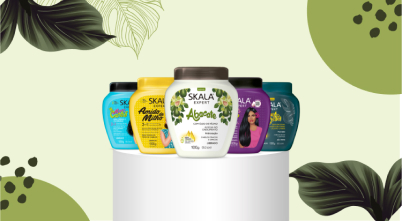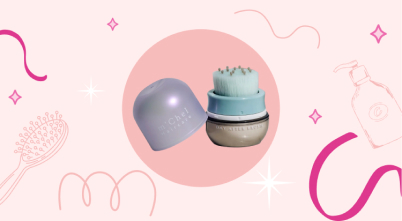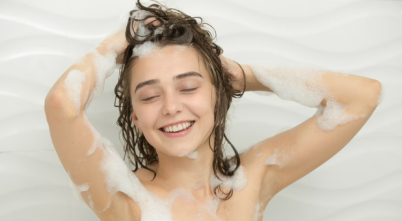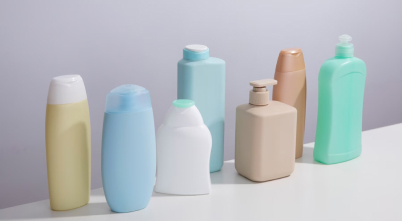Struggling with a persistently dry, flaky, and sensitive scalp? You're not alone! That's why we're delving into the world of DermaVeen Oatmeal Shampoo to find out if it's the solution we've all been searching for.
In this comprehensive review, we'll examine everything from its dermatologically tested formula to possible side effects. Want to know what customers are saying in their DermaVeen Oatmeal Shampoo reviews? We've got that covered too! So, let's embark on this hair care adventure and discover if this shampoo is truly worth trying. Ready? Let's go!
What Is DermaVeen Oatmeal Shampoo?
DermaVeen Oatmeal Shampoo is a gentle hair cleanser that promises to soothe, protect, and nourish sensitive scalps while retaining the hair's natural oils. This soap-free, pH-balanced formula is specially crafted with 100% natural finely milled oat, also known as Colloidal Oatmeal.
Colloidal Oatmeal has been scientifically proven to provide a host of dermatological benefits(1), such as hydration, combating dryness, and alleviating itchiness and irritation. It's also hypoallergenic, paraben-free, and fragrance-free, making it suitable for those with delicate skin. The inclusion of emollients ensures your hair is left feeling soft and silky after every wash.
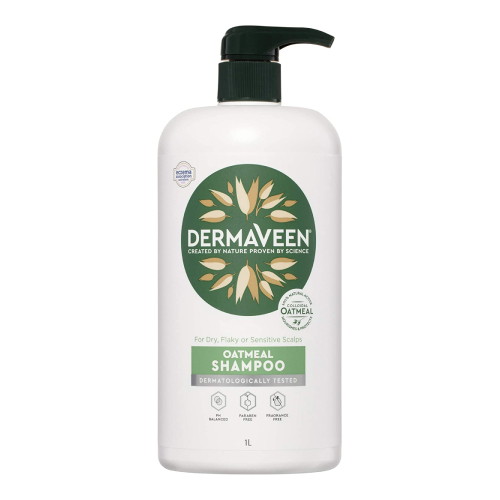
| Pros
|
Cons
|
Does DermaVeen Oatmeal Shampoo Work?
The million-dollar question: can DermaVeen Oatmeal Shampoo deliver on all it boasts? Based on the benefits of Colloidal Oatmeal and its proven ability to hydrate, fight dryness, and soothe scalps, there's a solid foundation to believe it can. Additionally, the shampoo's pH-balanced and soap-free formula encourages optimal skin function, helping to alleviate common scalp issues.
Of course, individual results may vary, and not everyone will experience the same benefits. It's also worth noting that this shampoo contains Sodium Laureth Sulfate (SLS), which some individuals may prefer to avoid due to potential sensitivities or personal preferences.
Nevertheless, if you're on the hunt for an oatmeal shampoo humans can use that is tailored to address dry, sensitive scalps, DermaVeen Oatmeal Shampoo might just be the right choice for you!
DermaVeen Oatmeal Shampoo Ingredients
Let's delve into the key ingredients of DermaVeen Oatmeal Shampoo such as Colloidal Oatmeal, Glycerin, Sodium PCA, Cocamidopropyl Betaine, and Citric Acid, so you can get a better understanding of what's in this shampoo.
Colloidal Oatmeal
Colloidal oatmeal(2) is a unique form of oats, processed into a fine powder that can be mixed with water or incorporated into various skincare and haircare products. Known for its long-standing use in home remedies and commercial treatments, it provides relief from skin irritations and is even recommended for babies' delicate skin.
Colloidal oatmeal is created by grinding oats and boiling them to form a colloid, a solution that allows the particles to remain evenly dispersed and mixed. This process makes it easy for the skin to absorb and utilize its benefits. So, while regular oatmeal is a breakfast staple, colloidal oatmeal shines as a skin and hair treatment!
For hair, colloidal oatmeal offers a multitude of benefits:
- Hydrates and nourishes hair from roots to tips, preventing split ends.
- Rich in natural fibers, providing essential nutrients for hair growth and thickening.
- Effective in treating dandruff with its unique lipid and protein composition.
- Contains saponin, a natural cleanser that removes dandruff flakes.
- Soothes dry and itchy scalps with its anti-inflammatory, anti-itch properties, and vitamin B content.
Glycerin
Glycerin(3), or glycerol, is a sugar alcohol derived from various sources like plant oils, animal products, or synthetically made. It's a colorless, odorless substance often found in skin and hair care products due to its humectant properties, meaning it attracts and retains moisture.
Glycerin's effectiveness is influenced by the climate. It works best in moderately humid environments, as dry climates may draw moisture out of the hair, and very humid environments may cause puffiness due to excessive moisture absorption.
Hair benefits of glycerin include:
- Suitable for all hair types, especially curly, thick, or frizzy hair.
- Combats dryness, frizz, and breakage by drawing moisture and preventing moisture loss.
- Aids in conditioning, resulting in shinier, healthier hair less prone to split ends.
- Antimicrobial properties alleviate itchiness and improve scalp health.
Sodium PCA
Sodium PCA(4), or monosodium salt DL-proline, is the sodium salt of a naturally occurring compound known as pyrrolidone carboxylic acid. It is a derivative of proline, an amino acid found in plant and animal tissues with crucial roles in human metabolism, immune response, and wound healing. Sodium PCA is endogenic and easily absorbed by the skin when used in skin care products and topical lotions.
The advantages of incorporating Sodium PCA in hair care products entail:
- Acts as an effective emollient, softening and smoothing the skin's surface.
- Potent humectant, attracting water molecules and retaining them for improved skin hydration.
- Non-comedogenic, promoting better hair follicle health and circulation.
Offers various benefits when combined with other active ingredients, such as longer, thicker, silky, and shiny hair, scalp health maintenance, and chemically damaged hair restoration.
May help treat inflammatory scalp conditions like eczema and flaky scalp.
Cocamidopropyl Betaine
Cocamidopropyl Betaine(5) (CAPB) is a surfactant, foam enhancer, and thickening agent derived from coconut oil and propylene glycol. It is a pale yellow liquid with a thick consistency, extensively used in personal care, beauty, and household cleaning products.
CAPB is stable at a wide range of pH values and compatible with various hair care ingredients. It is considered safe, non-toxic, and non-irritating for topical application, but some individuals may experience allergic reactions due to impurities formed during the manufacturing process.
Cocamidopropyl Betaine provides a multitude of hair care benefits, encompassing:
- Acts as a gentle surfactant, reducing the surface tension of water for easier dirt and residue removal.
- Serves as an emulsifying and thickening agent, enhancing product texture and appearance.
- Provides moisturizing effects for soft and manageable hair.
- Reduces static charge build-up and flyaway hairs as an anti-static agent in conditioners.
Citric Acid
Citric Acid(6) is a naturally occurring organic acid found in citrus fruits and various vegetables. It is a colorless, odorless chemical compound with a weakly acidic pH level between 3 and 6. Commonly used as a food additive, preservative, and ingredient in cosmetic and medicinal products, Citric Acid is versatile and beneficial for hair and skin care.
With the inclusion of Citric Acid, hair care products present a range of advantages, including:
- Stimulating hair follicles to boost hair growth.
- Improving scalp condition and providing relief from itchiness.
- Exhibiting antioxidant properties for overall hair health.
- Enhancing hair glossiness and aiding in hair lightening.
- Balancing the pH level of the scalp and removing excess oil.
Alternatives to DermaVeen Oatmeal Shampoo
Benefits of DermaVeen Oatmeal Shampoo
DermaVeen Oatmeal Shampoo offers a range of impressive benefits for your hair and scalp, from its natural Colloidal Oatmeal formula to its ability to soothe and manage dandruff.
Natural Colloidal Oatmeal Benefits
DermaVeen Oatmeal Shampoo is formulated with 100% natural Colloidal Oatmeal. This shampoo utilizes the unique properties of Colloidal Oatmeal, which is known for its ability to hydrate and nourish hair, prevent split ends, and promote hair growth.
The shampoo is formulated to gently cleanse your hair(7), soothing and protecting sensitive scalps while retaining the hair's natural oils.
Soothing and Dandruff Control
The shampoo effectively soothes dry, irritated scalps and helps manage dandruff. No more worries about embarrassing flakes or itchy scalps—this shampoo has got you covered. Thanks to its carefully selected ingredients, such as Glycerin and Sodium PCA(8), it provides much-needed relief and maintains scalp health.
Balanced and Gentle Formula
DermaVeen Oatmeal Shampoo is soap-free and pH-balanced, promoting optimal skin function. With a pH level that encourages the scalp to function at its best, it ensures that your hair and scalp maintain their natural moisture balance. The shampoo also contains Citric Acid, which helps achieve the ideal pH for healthy hair(9).
Soft and Silky Hair
The emollients in the DermaVeen Oatmeal Shampoo not only care for your scalp but also leave your hair soft and silky. Ingredients like Cocamidopropyl Betaine contribute to a luxurious lather that gently cleanses, leaving your hair with a smooth, silky feel. It's like giving your hair the royal treatment it deserves.
Potential Side Effects
While DermaVeen Oatmeal Shampoo is generally well-tolerated, as with any hair care product, some potential side effects may arise. Although most people can enjoy the shampoo without any issues, it's crucial to be aware of any potential reactions, especially if you have sensitive skin or are prone to allergies. Here are some possible side effects you should be aware of:
Scalp Irritation
Sodium Laureth Sulfate is a common ingredient in many shampoos and DermaVeen Oatmeal Shampoo is no different. Sulfate is known to cause irritation for some users(10), especially those with sensitive skin or scalp. In some cases, it can lead to redness, itching, or dryness. If you notice these symptoms, it might be best to discontinue use and consider an alternative product.
Allergic Reactions
Although rare, some individuals might be allergic to ingredients like Cocamidopropyl Betaine, a gentle surfactant. If you experience skin irritation, itchiness, or other signs of an allergic reaction, stop using the shampoo and consult with a medical professional.
Hair Buildup
Dimethicone, a silicone-based ingredient, can occasionally cause buildup in some users' hair, making it feel weighed down or greasy. If you notice your hair feels heavy or has residue after using the shampoo, you might want to explore other options without silicones.
How to Use DermaVeen Oatmeal Shampoo
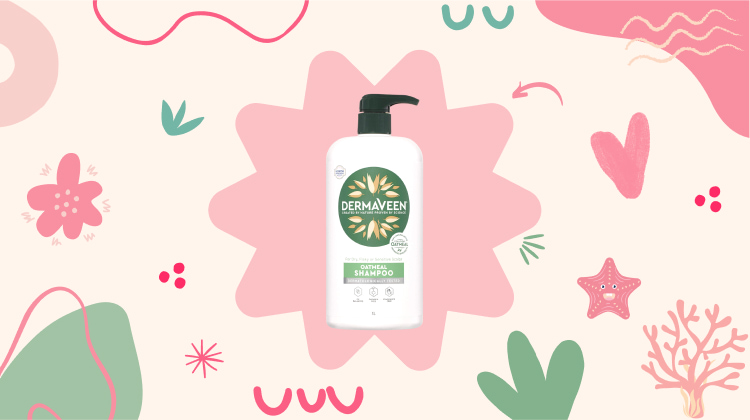
Now that you know the ins and outs of DermaVeen Oatmeal Shampoo, let's talk about how to use it for the best results. It's pretty simple, really. Just follow these easy steps, and you'll be on your way to nourished, healthy-looking hair:
- Start by wetting your scalp thoroughly. Ensure that your hair is soaking wet before applying the shampoo.
- Pour a small amount of DermaVeen Oatmeal Shampoo into your palm and gently massage it into your hair and scalp. Don't be afraid to work it in well – you want to ensure even coverage.
- Let the shampoo sit on your hair and scalp for 2-3 minutes. This waiting period allows the nourishing ingredients to work their magic.
- Rinse your hair thoroughly, making sure to wash off all the shampoo. You don't want any residue left behind.
- Sometimes, a second round is needed for optimal cleansing, especially if your hair is particularly dirty or oily.
For the best results, use both DermaVeen Oatmeal Shampoo and Conditioner in combination. This step will help lock in moisture and keep your hair feeling soft and smooth.
DermaVeen Shampoo Review: What Do Customers Say?
“This shampoo has helped my daughter who has severe psoriasis that i have been fighting with for over a year straight everyday with shampoos from the dermatologist and nothing has worked like this shampoo. my daughter is 6 years old and one month of using this shampoo and her scalp is completely cleared up . I recommend this shampoo for anyone that is sensative and has psoriasis or excema ! It last a long time to i have barely used a quarter of the bottle ! It has worked miracles for us so its worth the money ! hopefully this rreview can help another parent feeling like they cant do anything for there child! This shampoo is a game changer! I highly recommend!” - Timothy J Covey Sr
“I bought this after experiencing flaking due to dry scalp and it cleared my scalp after only 1 wash. I had tried other brands and other shampoos with shea butter, keratin, oils, etc and nothing had helped. It foams up well and is fragrance free. It cleanses well. I have kept my routine of washing my hair every other day.” - Rita92
“I have tried various products labelled as organic or natural and this shampoo has been the best one I have tried! It cleans my hair better than other shampoos and I find my hair is cleaner for longer and I don't have to wash it as often. It is now the only one I buy.” - Mel306
However, the shampoo does not work for everyone:
“This shampoo is unbelievably useless. I find I need a huge handful just to get a minimal lather. I constantly feel the need to wash my hair twice and even the the second time there is zero lather. I behaves more like a conditioner than a shampoo. I can tell it won't last long due to the huge amount I use each wash. Thoroughly unrecommended.” - Steph T
Final Thought
There you go! Our DermaVeen Oatmeal Shampoo review covered the essential aspects of DermaVeen Oatmeal Shampoo, from its ingredients to its potential side effects, and how to use it for the best results.
This shampoo could be an excellent option for those with sensitive scalps or in search of a gentle hair care product. Feel free to give it a try and see if it's the right fit for you. And who knows, maybe you'll end up adding the DermaVeen Oatmeal Conditioner to your routine as well! Just read a DermaVeen Oatmeal Conditioner review first before trying.
Pay attention to how your hair and scalp react, and if you experience any issues or side effects, consider seeking an alternative. Ultimately, the goal is to find hair care products that make you feel confident and comfortable in your own locks. Happy hair care journey!
Frequently Asked Questions
Is oatmeal shampoo good for itchy scalp?
Yes, oatmeal shampoo is good for itchy scalp. Oatmeal has soothing and anti-inflammatory properties that help calm irritation and reduce itching on the scalp.
Is DermaVeen shampoo good for psoriasis?
DermaVeen shampoo may help with psoriasis, as its gentle, oatmeal-based formula can soothe and moisturize the scalp, alleviating some symptoms.
Is DermaVeen shampoo good for dandruff?
DermaVeen shampoo can be beneficial for dandruff, as oatmeal helps restore the scalp's natural balance, preventing excessive flakiness and dryness.
Is DermaVeen shampoo good for eczema?
DermaVeen shampoo may help with eczema, as its mild, oatmeal-based formula helps soothe irritation and moisturize the skin on the scalp.
Does DermaVeen oatmeal shampoo contain sulfate?
Yes, DermaVeen oatmeal shampoo contains sulfate (Sodium Laureth Sulfate), which is a common cleansing agent used in many shampoos.
References
1. Pazyar, N., Yaghoobi, R., Kazerouni, A., and Feily, A. (2012). Oatmeal in dermatology: a brief review. Indian journal of dermatology, venereology and leprology, {online} 78, 142. doi:https://doi.org/10.4103/0378-6323.93629.
2. Kurtz, E. S., and Wallo, W. (2007). Colloidal oatmeal: history, chemistry and clinical properties. Journal of drugs in dermatology: JDD, {online} 6(2), 167-170. Available at: https://europepmc.org/article/med/17373175.
3. Becker, L. C., Bergfeld, W. F., Belsito, D. V., Hill, R. A., Klaassen, C. D., Liebler, D. C., Marks Jr, J. G., Shank, R. C., Slaga, T. J., Snyder, P. W. and Gill, L. J., 2019. Safety assessment of glycerin as used in cosmetics. International Journal of Toxicology, {online} 38(3_suppl), pp.6S-22S. Available at: https://journals.sagepub.com/doi/pdf/10.1177/1091581819883820.
4. Andersen, F. A. (1999). Final safety assessment for PCA and sodium PCA. International Journal of Toxicology, {online} 18(2_suppl), 25-34. Available at: https://journals.sagepub.com/doi/pdf/10.1177/109158189901800206.
5. Jacob, S. E., and Amini, S. (2008). Cocamidopropyl betaine. DERM, {online} 19(3), 157-160. Available at: https://www.liebertpub.com/doi/full/10.2310/6620.2008.06043.
6. Kirimura, K., Honda, Y., and Hattori, T. (2011). Citric acid. In Industrial Biotechnology and Commodity Products, {online} (pp. 135-142). Elsevier Inc.. doi:https://doi.org/10.1016/B978-0-08-088504-9.00169-0.
7. Farboud, E. S., Amin, G., and Akbari, L. (2013). Avena sativa: an effective natural ingredient in herbal shampoos for the treatment of hair greasiness. British Journal of Medicine and Medical Research, {online} 3(2), 361. Available at: https://pdfs.semanticscholar.org/1df4/91c103cb0289501383c7ebc4c05eac97660a.pdf.
8. Kushwaha, R. K., and Maury, S. (2022). A REVIEW ON ANTI-DANDRUFF ACTIVITY OF HERBAL SHAMPOO. {online} Available at: https://wjpr.s3.ap-south-1.amazonaws.com/article_issue/ba15c424465f51c188b6ffca1b0cd303.pdf.
9. Gavazzoni Dias, M. F., de Almeida, A. M., Cecato, P. M., Adriano, A. R., and Pichler, J. (2014). The Shampoo pH can Affect the Hair: Myth or Reality?. International journal of trichology, {online} 6(3), 95–99. doi:https://doi.org/10.4103/0974-7753.139078.
10. Turkoglu, M., Pekmezci, E., and Sakr, A. (1999). Evaulation of irritation potential of surfactant mixtures. International journal of cosmetic science, {online} 21(6), 371–382. doi:https://doi.org/10.1046/j.1467-2494.1999.211920.x.
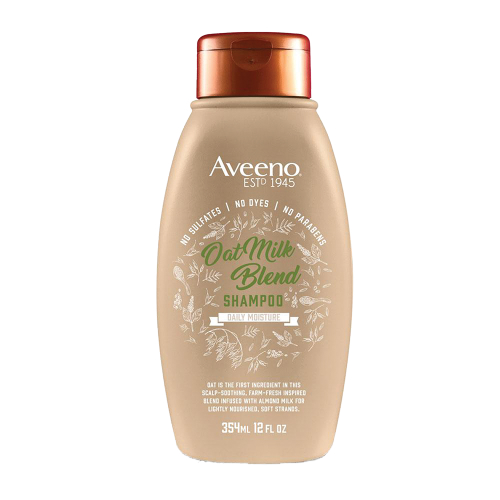
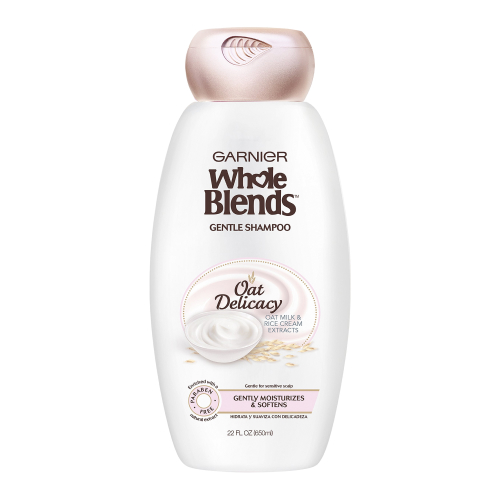
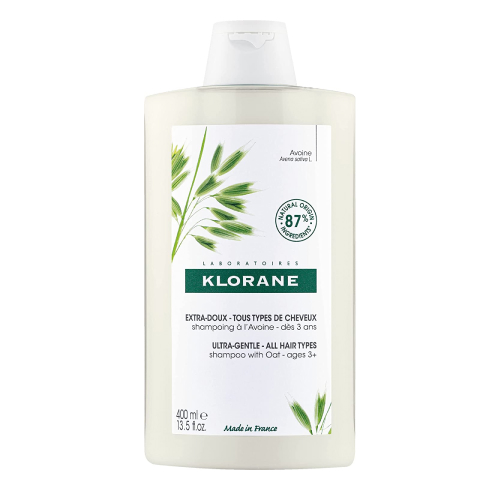

.jpg)
.jpg)
.jpg)
.jpg)
![Best Mielle Curly Hair Products Review 2023 [Updated]](https://vyhairlife.com/data/news_files/at/images/user_121/images/mielle-curly-hair-products-review.jpg)
